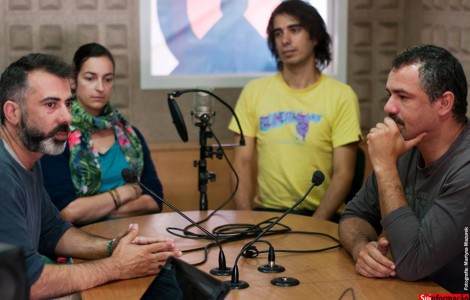 There are three distinct projects, but with common points. The originality of the services they offer, the desire to mark Faro on the map of the Algarve and Portugal, and also marking who visits them distinguishes Venda, Os Artistas and Casa d'Alagoa – Faro Hostel.
There are three distinct projects, but with common points. The originality of the services they offer, the desire to mark Faro on the map of the Algarve and Portugal, and also marking who visits them distinguishes Venda, Os Artistas and Casa d'Alagoa – Faro Hostel.
In an interview with the program Impressões da RUA FM, in partnership with the Sul Informação, Ana Fonseca and Vasco Prudêncio, from For sale, Pedro Bartilotti, ofthe Artists, and Diogo Perry, from Casa D'Alagoa – Faro Hostel, spoke of an ongoing change in the city of Faro to which they are contributing.
For sale offers those who visit them a journey through time and the imagination of “grandma's house”. Ana Fonseca and Vasco Prudêncio had the idea about two years ago.
“We wanted a snack shop that was a grocery store and a grocery store that was a snack shop, but many of the things were thought of according to the obstacles we were facing. We even thought that the grocery store would be more inclined and the snack bar would be a support, but people use the store more to go snack, drink a glass of wine, enjoy the space and end up taking some groceries. We even started with grocery store hours and had to adapt. During the week we keep this schedule, but at the weekend we already give people the opportunity to go there for dinner”, said Ana Fonseca.
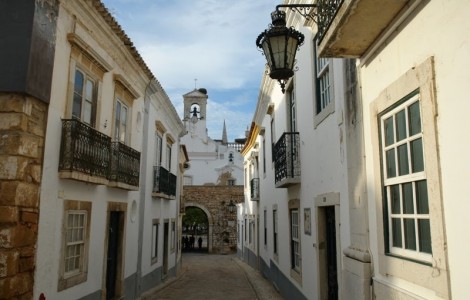 The originality of the project was also taken into account from the beginning. According to Vasco Prudêncio, “our idea was to do something that did not exist in Faro. We placed ourselves from the consumer's point of view to give them a space that was not equal to others”.
The originality of the project was also taken into account from the beginning. According to Vasco Prudêncio, “our idea was to do something that did not exist in Faro. We placed ourselves from the consumer's point of view to give them a space that was not equal to others”.
Originality is something that has always marked the Artists. Unlike A Venda, recently created, the Artists have already existed as a space for the promotion of shows and a bar for 20 years and are a reference in Faro in the artistic world. Times have changed, the city has changed, but the space has adapted to circumstances.
"I won't deny that five or ten years ago it was easier, with the Fnacs fever the artists came here to play and then, to monetize their visit, they played here. We had groups that it would be impossible to come here to play without it being that way, but the Fnacs fever passed and bringing in outsiders with some level has become more complicated. Even so, in the last three years we have brought Mazgani, B Fachada, projects with few musicians. It is necessary to make the right partnerships with the right people because now we know that we all need each other in some areas”, explained Pedro Bartilotti.
In relation to the public and the Faro, the situation has also changed, but the new “phase” of the city is faced with optimism. “Now there is less participation from university students, ten or fifteen years ago there was greater affluence, I think this has to do with the critical mass. In musical terms, they prefer more popular things that are easy to assimilate, but we have, on the other hand, students from Erasmus and other international associations”, said Bartilotti.
“In relation to the city, in the last two years, there has been a great dynamic in terms of opening spaces and it has been funny, because it seems that we are going back to the traditional and the typical. In architectural terms, for example, the hostel [Casa d'Alagoa] is a house about 200 years old, and Venda itself is also an old house [1833]. It seems that people are a bit sick of modernism and are looking for greater contact with the origins, with the stories of grandparents and parents. At Os Artistas we have already had artists who are going to exhibit and forbid us to remove cobwebs”, added Pedro Bartilotti.
A Alagoa House was the first hostel to open in Faro, was the year of 2011, a risky bet in an unexplored market in the city.
“When we decided we were going to be the first hostel in Faro, there was a risk, because the fact that there is none, could mean that hostels here do not survive. We did our math, and with the airport here and the fact that there is a connection to Lisbon and Seville, it proved to be an interesting point. The other advantage was the house, the very unique architecture could make a difference in terms of the type of environment and the impact on people”, said Diogo Perry.
The bet turned out to be right and the potential recognized in the city was confirmed.
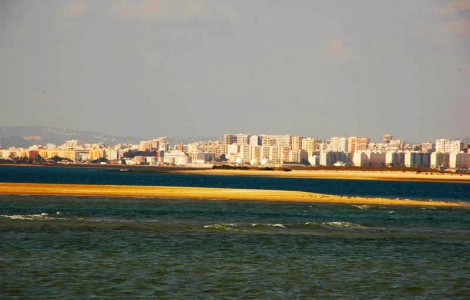 "I knew very poorly Faro, but when I came here to assess the city, I realized that it has tremendous potential, a lot to offer, from architecture, to heritage, which I consider to be number one in the Algarve in this regard, the Ria Formosa and the beaches. Here, in August, it is possible to have a deserted beach, while in the rest of the Algarve there are beaches without space to put a towel, crammed with people. We have guests who have returned to Faro, over and over again, because they like the city”, said Diogo Perry.
"I knew very poorly Faro, but when I came here to assess the city, I realized that it has tremendous potential, a lot to offer, from architecture, to heritage, which I consider to be number one in the Algarve in this regard, the Ria Formosa and the beaches. Here, in August, it is possible to have a deserted beach, while in the rest of the Algarve there are beaches without space to put a towel, crammed with people. We have guests who have returned to Faro, over and over again, because they like the city”, said Diogo Perry.
Faro It's not a tourist town, at least considering the Algarve standard, but that turns out to be a positive point for the hostel.
“The fact that it is a city that is not very touristy makes it more genuine, it shows the Portuguese people as they are, there is no tourist traps – houses of remembrances or very expensive restaurants. Our guests are looking for this type of experience and not the resorts and four star hotels. They are not looking to reach a place like Albufeira, which we advise against because it is not the type of registration they are looking for, it has no charisma, it doesn't matter whether it is here or in Spain. It's not Portuguese. come to Faro and they want to hear tips, they want to know what it's like to live here”.
Despite not being a sun and beach destination, Faro it also suffers from seasonality, a problem that can be minimized, according to Diogo Perry, with the creation of activities for those visiting the city.
“There are a lot of hostels that are appearing in the city. When we worked alone in the first winter, it was already difficult, and now it is even more, because there are already six hostels. In summer we're all fine, but in winter we're all bad and it's hard. We already know that more hostels are going to open. Everyone who has a building will open a hostel”, laments the businessman.
“Why not open a service for guests? Boat trips or restaurants like Venda, or events. Everyone focuses on having the accommodation, but no one focuses on giving these people experiences to stay here. It is a huge market opportunity that is not being exploited. There is great potential for Faro grow in terms of tourism. The city lacks a lot, but I already notice some changes. There are very interesting projects coming up”, concludes Diogo Perry.
Blind dinners & other ideas
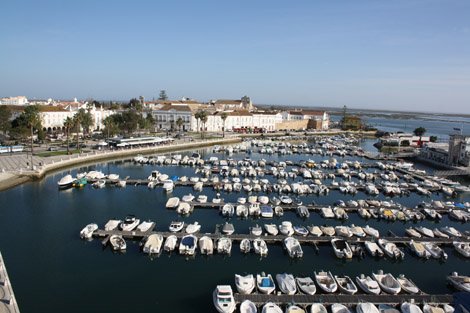 Consolidated in the present, A Venda, Os Artistas and Casa d'Alagoa seek to maintain and improve the offer, for which they prepare initiatives and partnerships, including between them.
Consolidated in the present, A Venda, Os Artistas and Casa d'Alagoa seek to maintain and improve the offer, for which they prepare initiatives and partnerships, including between them.
In the case of Venda, every month there is a blind dinner, on the first Saturday of each month. Ana Fonseca explained the concept: “We publish the menu on Facebook and people don't reserve tables, they reserve chairs. There are people who also go in small groups, but there is a very unique mood because they know they are going to a dinner with people they didn't know before. We've had wonderful nights, there are people you wouldn't see talking in the street, but they sit at the same table, talk and laugh in a fun night.”
“We also launched the lunch box, which allows customers to pick up our offer at the end of the day. We don't want to be the snack bar or the grocery store, we want people to take our concept out the door and, in that sense, we have things prepared. It might be interesting for us to work with hostels. In June we will debut out of doors, we will be at the MED Festival, later, who knows, for other festivals in Faro”, adds Ana Fonseca.
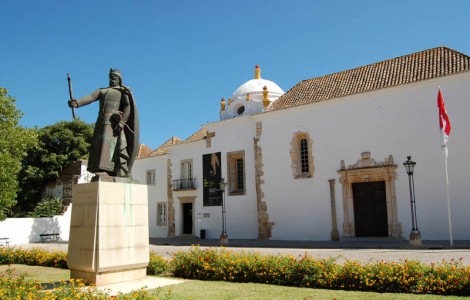 Casa d'Alagoa has got its guests used to visiting places they would never reach alone: Os Artistas is one of those places. But this is not the only common ground between Pedro Bartilotti's projects and Casa d'Alagoa.
Casa d'Alagoa has got its guests used to visiting places they would never reach alone: Os Artistas is one of those places. But this is not the only common ground between Pedro Bartilotti's projects and Casa d'Alagoa.
“We need greater dissemination of cultural activities. It's not easy to find information. Those who come here either know what they're looking for, or they don't find anything. This year we are creating a network of contacts, and Pedro [Bartilotti] has been helping us with that, connecting with people who may have interesting projects for both parties. For example, last year, I told Pedro that I wanted to be involved in Festival Adentro. I saw the potential it has and, next year, we'll see if I can get the hostels involved in this event. We want to be involved in what has the potential for us and for the city.”
Working together, in partnership, to make the city of Faro even more attractive to those who live there or visit it, it is therefore a common goal.


















Comments